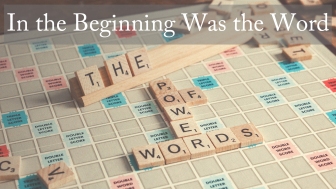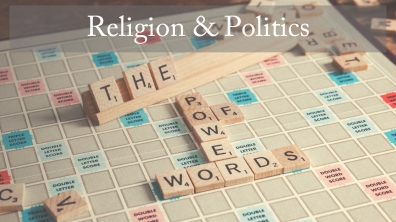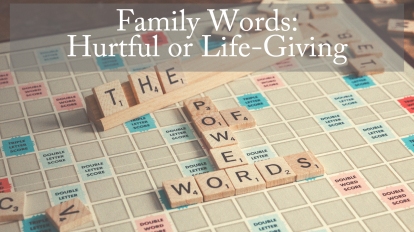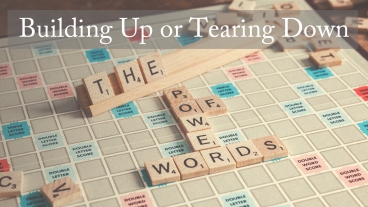
Be still and know that I am God. (Psalm 46:10a)
What does it mean to be silent. to wait on the Lord? What does it look like to not speak, but just enjoy the presence of the Almighty right where you are?
I am reminded of a moment when I was able to reflect the presence of God in the midst of terrible tragedy. I was in the middle of my clinical pastoral education at a local hospital, providing chaplain services to the patients who were suffering there. My pastoral duty, I thought, was to give wise counsel, to provide words of hope and promise to so many who felt distanced from God and from the peaceful realities of this life. I thought I was supposed to have answers or the right words to say. And for the most part, I thought I did pretty well in this area, until that one day…
It was a day like many others. It was a day that was filled with patient room visits, conversations with nurses and doctors. It was a day that seemed normal. I finished my rounds of visits and paperwork, and was finally on my way home. I reflected on what had happened throughout the day and was pleased with the words that God had given me to speak and the comfort they provided for those in the hospital. Dinner with the family was normal, almost forgettable. But then everything changed.
My pager went off a little after dinner. When I called in to find out the circumstances, I learned that it was for an infant baptism. The doctors were concerned with the health of this newborn and informed the parents of possible outcomes. When I arrived, there was a flurry of activity around the bedside of this little one. I was able to baptize the infant and then stepped back to observe the doctors, nurses, and parents.
It was a couple of hours later that I was called back to the room because of the decision which needed to be made by the parents. It was excruciating to bear witness to the death of a newborn boy. I couldn’t imagine what the parents were thinking and feeling. Following the decision, we were led into a different room so that the parents could be alone with their son. I followed them in and stood off to the side.
As I stood there, I was thinking that I should say something, anything, but what? How could any words in this moment speak comfort or peace when there seemed to be a complete lack of it. I began to question, as I was sure the parents were, to the presence of God in this moment. Why were there no words coming to mind to share with this family? I had gone through so much of this chaplaincy with pride in knowing what to say and when to say it, now…nothing.
I stood for what seemed like eternity. Then I looked around and found a chair to sit down on. I then rested for another half-hour or so. After listening to the family cry, one of the members asked if I would share a prayer. As best I could, I lifted a prayer for peace and understanding, for strength and wisdom in such a time. Before leaving the room, I let the family know that I would be right outside if they needed anything else.
It was the next day that I understood what God had called me to that night. I met with the parents and once again expressed my deepest sympathy and pain in their loss. It was then that the mother spoke to me. She expressed that she was thankful for all that I had done for them. When I asked what it was, she responded by telling me that it was because I sat down. In that moment, when things were swirling around and the world was crashing down around them, they felt the very presence of God. It was nothing I said. It was in the silence that God spoke to them. This is the very definition of the ‘ministry of presence.’
When we face terrible times in our lives, are we silent and still before God? Are we so in tune with God’s voice that we hear him speak in the silence, the stillness? Although we need to feel God’s presence in those difficult time, we also need to feel it everyday. How are your 15 minutes going?
“Be still and know that I am God.” Psalm 46:10a

 Words are powerful. Words have deep meaning. Words can encourage. Words can diminish. Words can make you feel like you are invincible and then bring you to your lowest point of self-worth. Words are important. Words are power.
Words are powerful. Words have deep meaning. Words can encourage. Words can diminish. Words can make you feel like you are invincible and then bring you to your lowest point of self-worth. Words are important. Words are power. Words are powerful. Words have deep meaning. Words can encourage. Words can diminish. Words can make you feel like you are invincible and then bring you to your lowest point of self-worth. Words are important. Words are power.
Words are powerful. Words have deep meaning. Words can encourage. Words can diminish. Words can make you feel like you are invincible and then bring you to your lowest point of self-worth. Words are important. Words are power. Words are powerful. Words have deep meaning. Words can encourage. Words can diminish. Words can make you feel like you are invincible and then bring you to your lowest point of self-worth. Words are important. Words are power.
Words are powerful. Words have deep meaning. Words can encourage. Words can diminish. Words can make you feel like you are invincible and then bring you to your lowest point of self-worth. Words are important. Words are power. There was a teacher who talked about an unruly student. Mark was his name. He would talk all the time and she couldn’t get him to be quiet. Now, I know this would not fly in today’s classroom, although there are probable some teachers here today who either would have tried this, or maybe they have done it. Anyway, Mark kept talking and finally the teacher had enough. She went over to him and taped his mouth shut.
There was a teacher who talked about an unruly student. Mark was his name. He would talk all the time and she couldn’t get him to be quiet. Now, I know this would not fly in today’s classroom, although there are probable some teachers here today who either would have tried this, or maybe they have done it. Anyway, Mark kept talking and finally the teacher had enough. She went over to him and taped his mouth shut.